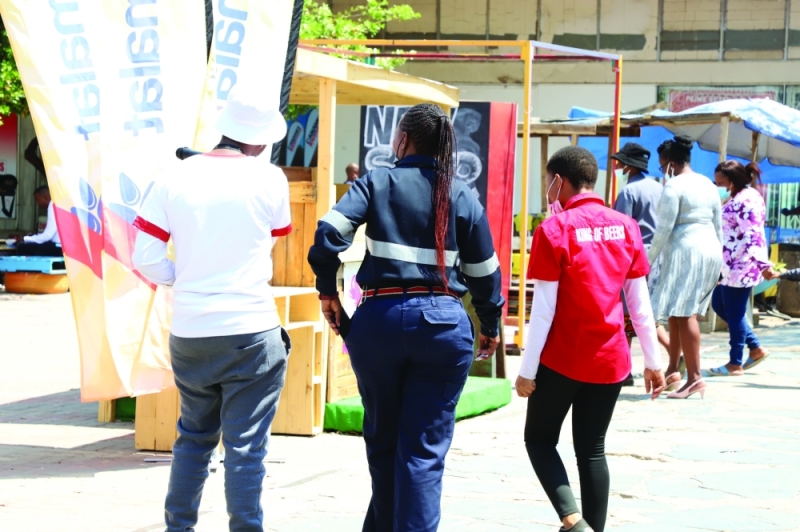Is a recession looming and did the last one even end?
Lewanika Timothy | Thursday July 18, 2024 15:24


The question is, can a graduate who couldn’t find a job during COVID-19 in 2020 and still can’t find a decent job in 2024, say the economy is not in a recession?
Certainly not, in fact for them the economy is still recessionary.
Experts can talk about the numbers all day. The different measurements, calculations and technical terms that explain what a recession is and how it comes about. They can talk about how a stimulus budget and other measures can help ease the economy out of a recession.
But the unemployed graduate’s recession persists.
To bore you with the more technical, pessimism clouds expectations for Botswana’s economic performance throughout a risk fraught 2024. The crux of such pessimistic opinions centres on low confidence levels for the diamond market performance, the mainstay of Botswana’s economy.
The centre of Botswana’s economy failed to hold in the first quarter of 2024, with GDP contracting by 5.3%, mainly due to the diamond crunch. Diamonds, which can be loosely labelled the breadwinner in Botswana’s economy, have been getting a through beating in markets as demand faces a knock especially in major economies whose purchasing power makes or breaks the diamond market.
With diamonds’ contribution to overall economic activity declining in the first quarter, the economic contraction has raised fears over what experts term a technical recession.
A technical recession is defined as a period when the economy endures two consecutive quarters of negative economic growth. The issue here is that second quarter figures are likely to be even scarier than the first, as the diamond market is expected to continue being subdued.
There is definitely no doubt that GDP figures are down and economists and other technocrats can argue and win on technicalities over whether the economy is headed for a recession.
But technical economic jargon is less valuable when one is trying to figure out hunger levels, hopelessness or suffering endured by the mere man in the economy.
It would be a gross disservice not to consider the pressure households are facing as the economy slows down and opportunities darken. In wondering whether economy is in a recession or not, the question should be whether families are finding it cheaper to feed their families and whether the welfare of citizens is improving positively.
Unemployment, which is a recession litmus test, has proved a stubborn child to put to bed, with latest data showing levels of more than 26%.
The underlying data is even scarier. The International Monetary Fund estimates that annually 35,000 graduates hit the job market in Botswana and creating jobs for these young men and women has however proved to be an uphill task for both government and the private sector.
Meanwhile, those formally employed and consequently supporting the unemployed friends and relatives, are under increasing pressure due to stagnant wage growth.
According to recently released central bank data, of the P6.1 billion owed in arrears to various commercial banks as at April 30, at least P3.44 billion or just under 60% is owed by households.
Within this figure, more than P1 billion was classified as “specific provisions” which means arrears that are more than 180 days overdue, regarded as being in the worst category of defaulters.
The central bank’s concern is that much of the household debt, or up to 68% at at April, consists of expensive unsecured debt. According to the BoB, this presents potential debt distress to households, especially “when financial and borrowing conditions could suddenly and sharply tighten.
The infamous “unsecured personal loan” and its numerous “top ups” was exposed in 2020 when the pandemic rendered nearly 70,000 unemployed. Commercial banks instituted temporary repayment reliefs, but as these ended, many found themselves jobless and saddled with ever-more threatening correspondence from debt collectors. Is that a recession?
It’s not just households but also businesses that are facing pressures as debt levels and the ability to pay back gets tougher. When businesses can’t cover their costs, they often resort to cost cutting measures and then ultimately job cuts.
In construction and manufacturing, two sectors that were expected to benefit the most from the record P102.3 billion budget for this year, commercial bank loan arrears are on the rise.
According to central bank figures, between March and April, the level of bank arrears in construction and manufacturing rose 19% and 13% respectively, indicating growing stress in the two sectors.
Rather than keeping an eye on whether a technical recession develops, the ordinary Motswana will keep a closer eye on government spending which many use as a proxy for economic growth or contraction.
Until the formation of the Public Service Bargaining Council some years ago, many of the ears tuned into the annual budget were listening out for wage increase announcements, rather than growth forecasts.
This year, those watching the budget line, will also note the “recession” in the numbers.
In a first quarter 2024 economic review, Econsult economists, Keith Jefferis and Sethunya Kegakgametse, said the country was headed down a path of fiscal unsustainability, adding that the continued tendency to finance deficits through savings may harm the economy in the long run.
“One of the major concerns in recent years has been long-term budget sustainability,” the researchers said.
“This follows the switch from structural budget surpluses in the period up to the late 2000s to structural deficits since that time.
“This is in turn because fiscal expenditure has not been reduced in line with declining revenues, making the current fiscal trajectory unsustainable.”
The researchers added: “In recent years, questions have been raised about the sustainability of Botswana’s public finances, the emergence of structural budget deficits, the depletion of government savings alongside rising public debt, and the quality and efficiency of government spending.”
The average Motswana, who battled through COVID-19 and has been waiting for the smoke to clear, appears set to continue in the clutches of an unforgiving recession.
